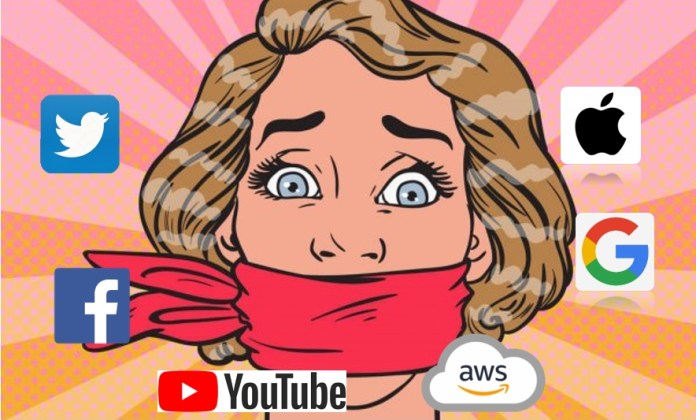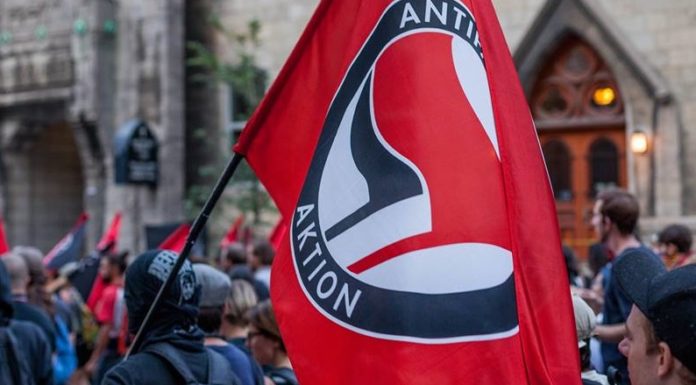This used to be a given: regardless of the problem, there was always a defined, proper, escalation chain for resolution. We may not like the ultimate answer finally arrived upon, as these things tend to the winner/loser dynamic, but at least both sides were heard by an authority figure or authority group, and relative justice was meted out (for the most part). Most cases, justice was consistently applied, regardless of whom was arguing what. Slick and smooth representation often gave one side an advantage over another, but at least both sides got to present their arguments. And yes, history is replete with authority figures either misapplying justice, or bending the answer to fit their desired view of justice—often later corrected by future authority figures. The action of appealing to a higher authority after an undesirable outcome, showing an error in procedure or evidence, or bringing late info into the argument, is fairly commonplace in our society. The goal supposedly is to arrive at the truest application of ‘justice’ available. Have we broken our resolution process? Let’s dig.
From birth, children got their introduction to ‘justice’ from their parent(s). Mom, Dad, or both, set rules and punishments for breaking said rules. It was decidedly NOT a democracy—the child had zero input into that process (‘because I said so’ is a very popular rule justification). While there are infinite rule sets and rule makers (single parent households, parents that let one or the other be the ‘bad guy’, or true partnerships), and even more variety in punishments, everyone had a general idea of what was what. Some households were quite lenient, others quite strict. Some were solidly consistent in policing family policy, while others were wildly inconsistent, varying outcomes day to day, if not more frequently. Some parents showed preference for one child over another, further muddying the waters. Some older siblings assumed ‘rule maker’ and ‘punisher’ roles over younger siblings, with or without their parents’ consent. No, household ‘justice’ is not guaranteed to be uniform, it is not always equally administered, nor is it always ‘fair’. But the baseline dynamic of arguing disputes to a third party is established at the family level. There are ZERO appeals processes at this level of ‘justice’, unless you have a forceful grandparent, who is willing to override the parent(s). Good luck with that! 😊
The next exposure to ‘justice’ for most folks is the neighborhood. Games played with folks outside of your immediate household have an entirely different dynamic. These rules are generally agreed upon by the players. Enforcement is always a challenge, as some kids are simply stronger, meaner, or smarter than the others—so they get their way more often than not. And the punishment side of this new dynamic isn’t spanking, it is fighting! Oddly enough, the group can override even the strongest single kid, to the point of ending the game entirely (“I’ll just take my ball and go home!”) Another aspect of neighborhood justice is the realization that rules are location specific. There are usually some areas of a neighborhood that are simply to be avoided altogether, because whatever rules there are, they are not enforced enough to matter. It just isn’t safe to play there. Note that if folks are not happy with the resolution arrived at, there was always the possibility of appeal to parents—not likely to change the outcome, but they were usually available to hear the pleas. The tendency was for each parent to side with THEIR child, but grievances still got heard by third parties.
Similar to neighborhood justice is that of the public school (I’ll leave private school out of this discussion, as the rule variances and strictness are well outside of my knowledge base). Children get their first exposure to authority figures that are outside of neighbors and families, that have specific roles. Teachers generally control the classroom areas (maybe not as much as in the past), and principals control the school areas outside of the classrooms. There may even be school police at some locations, adding a bit more severity to the enforcement side of the equation. Public school justice and punishment theoretically work with the parents to assure behavior conducive to learning (I did write ‘theoretically’). The punishment side of this dynamic ranges from being yelled at, to embarrassment, to getting sent to the principal’s office, to suspension, to expulsion. Paddling used to be right after ‘embarrassment’, but is now illegal in most places. The appeals process in this scenario was only the parents (again). They sometimes had a sympathetic ear for their kid, if they thought the child was not treated fairly. In fact, many parents err on the side of the kid, blasting the school personnel for basically doing their jobs.
Finally, we get to the ‘real world’. We have the police, legal, and judicial environment of the US as a whole. Local law, police, and courts, followed by State law, police, and courts, followed by Federal law and Federal investigative bureaus, and Federal courts. All of the laws and punishments are codified, and written down in various places. But folks have found out that, if you don’t get caught, it’s ‘legal’. And punishment consistency is a currently unattainable myth. But, when severe punishment is doled out, it can be of the harshest in the country: massive fines, probation, civil forfeiture of assets, even prison. The outside edge of punishment is the death penalty in some States! The appeals process of this ‘real world’ involves an entire appeals court system with that exact purpose. Appeals usually involve an error in procedure, an error by the lower court, or new evidence not available to the earlier trial. The end-of-the-line of such appeals goes up to and may include the Supreme Court of the United States (USSC). Cases do not frequently make it this far, as USSC was intended to be the arbiter between States, not people. However, if the case may clarify or argue a Constitutional issue, it may be heard by USSC.
But the modern world has modern problems, as we have seen recently in our elections process, along with the actions of the Big Tech firms in January. The irregularities in the election warranted at least a complete investigation, if not a solid audit—but none took place. Emergency arguments were filed with USSC, but were never heard, due to ‘lack of standing’—which means that the over 4,000 signed affidavits (signed under penalty of perjury) were never entered into evidence in a single US court. Mathematical impossibilities (more votes than registered voters, incredible voter turnout percentages, massive mail-in ballots accepted, the whole question of Dominion Voting System’s software and hardware inaccuracies, etc.) never got pro/con arguments in court.
Then Twitter, Facebook, YouTube (a Google company), and Instagram decided it was within their legal means to remove parties from their platform entirely, and they all coordinated in their efforts! Did those parties removed incite violence or break laws? No, just they advanced political thought the Big Tech companies did not approve of. They removed the accounts of the President of the United States! In fact, Amazon (AWS) decided to remove Parler, a competitor of Twitter, from their servers, for the same reasons. Now, these platforms currently have section 230 legal protections, which allow platforms immunity from liability lawsuits as media (think ATT). But removing users due to legal content is not the role of a medium, but that of a publisher (think NYT). And the collusion of Google, Apple, and AWS against Parler allegedly breaks MANY anti-trust laws. Problem: if Congress, our legislative body, does not control the overreach of these companies, and USSC does not reign them in via jurisprudence, who exactly does Parler or its users have to take its grievances to? If the answer is ‘no one’, we have a country run by Big Tech, with no recourse or appeal process. If this sounds quite Unconstitutional, you’d likely be correct. I am not a lawyer, Constitutional or otherwise, but the foreboding feeling of non-governmental powers that have untoward power over individuals and other companies just scares the daylights out of this author. A point to note: if peaceful resolutions are not available, the only avenue to pursue for many will be of the non-peaceful variety. Time will tell if my fears are exaggerations or predictions.
Welcome!Log into your account





















Remain on the defensive, and our will is united. Engage battle, and they scatter easily. In other words, the best defense is a good offense, right?